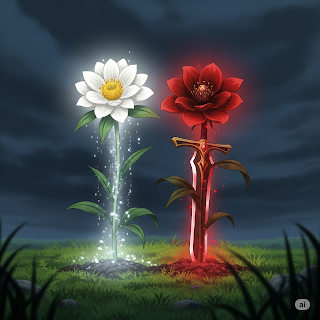A Tale from the Misty Kingdoms —
Long ago, in a distant kingdom nestled between snowy mountains and fog-laced forests, there lay a town called Ilona, famous for its ancient castles and luminous music festivals. The people of Ilona passed down a legendary love story from generation to generation — the story of Tindor, a noble knight, and Remy, a girl with a voice like morning light.
Tindor was born into a noble family and trained to be among the king’s elite guards. Though strong and valiant, his heart belonged not to war but to poetry and starlight. He dreamed of peace, not glory — of quiet meadows rather than the clash of steel.Remy, on the other hand, was an orphan who lived in a humble cottage on the edge of the woods. She sang to children, told stories to the wind, and possessed a beauty so gentle it seemed woven from moonlight. Her voice was said to make the trees sigh and the rivers pause.One evening, during the grand Festival of Lights, their eyes met for the first time. Remy danced beneath lanterns, her white dress glowing like snow, her laughter rippling through the crowd. Tindor approached her and asked:
“From which land comes the light that lives in your eyes?”
She smiled and replied:
“From the same land where hearts dream freely.”
From that moment, they were inseparable. They met secretly in the woods, where Tindor recited verses crafted from his soul, and Remy sang melodies shaped by her longing. Their love grew wild and beautiful — like flowers blooming through old stone.











تعليقات
إرسال تعليق